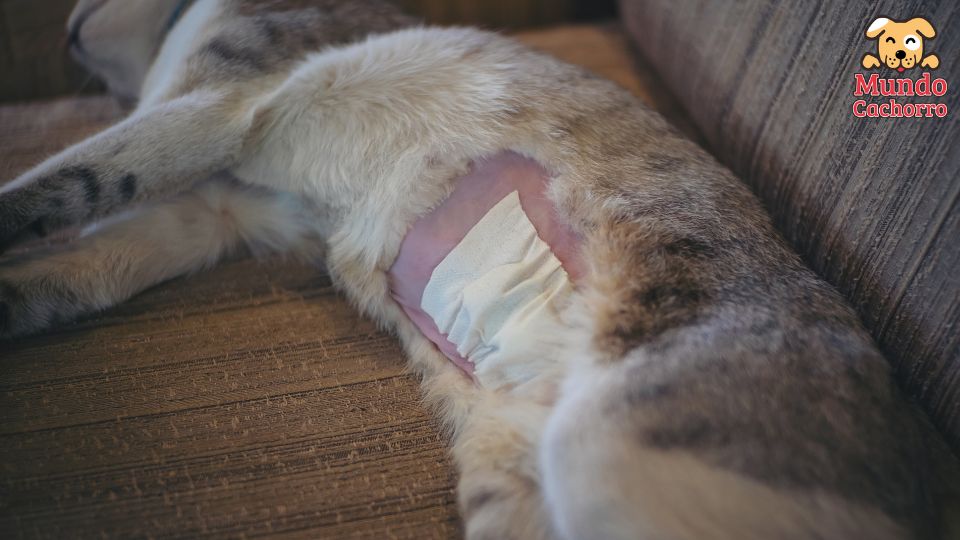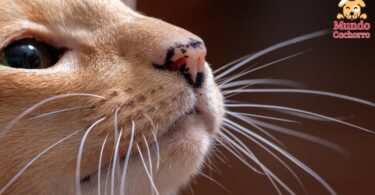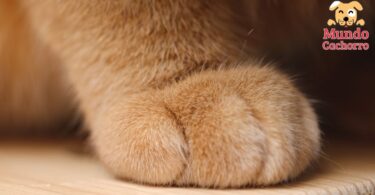Taking care of a neutered cat’s diet requires special attention. After sterilization, cats experience hormonal changes that can affect their metabolism and feeding behavior. These changes can lead to weight gain, urinary problems and other health complications if proper dietary measures are not taken.
Choosing the right food for neutered cats then becomes a crucial decision to ensure their long-term well-being. 
Why do sterilized cats need a special diet?
Neutering, while beneficial in controlling the cat population and preventing certain diseases, causes a significant change in the cats’ metabolism. After being sterilized, cats tend to have less physical activity and their caloric needs decrease. However, their appetite may increase, which can lead to overweight if the diet is not properly controlled.
In addition, neutered cats have an increased risk of developing urinary problems. Sterilization can increase the concentration of minerals in the urine, which contributes to the formation of urinary crystals and stones. For this reason, it is essential to choose a food that helps maintain urinary tract health and weight control.
Characteristics of the ideal food for sterilized cats
When selecting food for sterilized cats, it is essential to take into account several characteristics that are adapted to their specific needs. One of the main characteristics that this food must have is a reduced fat and calorie content. This helps prevent weight gain, which is common in neutered cats due to their reduced physical activity. Another important feature is the inclusion of ingredients that promote urinary health. Look for foods that contain balanced levels of minerals such as magnesium, phosphorus and calcium, as this can help reduce the risk of stone formation.
Some neutered cat foods also contain specific ingredients to acidify the urine, which can help dissolve crystals and prevent their formation.
In addition, food for sterilized cats should contain an adequate amount of high quality protein. Although the cat needs fewer calories, it still requires a good amount of protein to maintain its muscle mass and overall health. Proteins of animal origin are preferable, as they provide the essential amino acids that cats need.
Dry or wet food for sterilized cats?
The choice between dry or wet food for sterilized cats depends on your cat’s preferences and health needs. Dry food has the advantage of being more economical and easier to store, as well as contributing to the cat’s dental health by reducing plaque formation. However, due to its low moisture content, it is important to make sure your cat drinks enough water to avoid urinary problems.
On the other hand, wet food contains a high water content, which helps keep your cat hydrated and promote good urinary health. This option can be especially beneficial for cats that don’t drink a lot of water.
In addition, wet food usually has fewer calories per serving compared to dry food, which helps with weight control.
Some cat owners opt for a combination of both options to offer the best of both worlds: the convenience and dental benefits of dry food, along with the hydration and taste of wet food.
Recommendations when choosing food for sterilized cats
When choosing the best food for your neutered cat, it is essential to read labels and understand what you are buying. Look for foods formulated specifically for spayed or neutered cats, as these products are designed to address their unique nutritional needs. Also, consult your veterinarian before making any changes to your cat’s diet. A veterinarian can offer personalized recommendations based on your cat’s age, weight, activity level and health status. This is especially important if your cat already has health problems, such as overweight or urinary conditions.
Another recommendation is to observe how your cat responds to the new diet. Pay attention to their weight, energy level and general behavior. If you notice any unusual changes, consult your veterinarian to make sure the diet is still adequate.
The importance of a balanced approach
Maintaining a balanced approach to feeding your neutered cat is key to its long-term health. Combining a proper diet with regular exercise can help prevent many of the health problems associated with neutering.
Make sure your cat has opportunities to play and be active, which will contribute to his or her physical and mental well-being. Choosing the right food for sterilized cats not only helps control weight, but also protects your pet’s urinary and overall health. A well-balanced diet, along with regular veterinary care, will ensure that your cat enjoys a long and healthy life.







